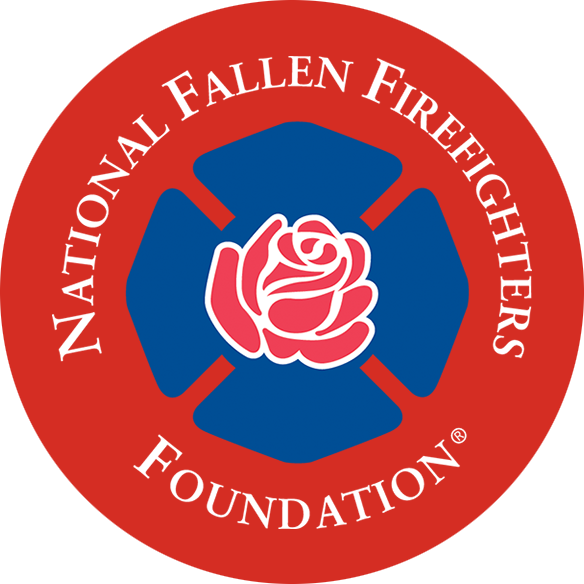Updated July 2021 (COVID-19 related benefits updated April 2021)
COVID-19 BENEFITS
COVID-19-related first responder deaths are considered line-of-duty deaths under the Public Safety Officers’ Benefits Program. Legislation passed in August 2020 established a statutory presumption for first responders who die from, or are disabled by complications related to, COVID-19. Prior to August, suspected cases were required to have proof that exposure occurred during their work duties.
(Legislation: S.3607 – Safeguarding America’s First Responders Act of 2020)
Contact:
Public Safety Officers’ Benefits Program
Phone: (888) 744-6513
E-mail: AskPSOB@.usdoj.gov
Website: bja.ojp.gov/program/psob
Under the Coronavirus Response and Relief Supplemental Appropriations Act of 2021 and the American Rescue Plan Act of 2021, FEMA will provide financial assistance for COVID-19-related funeral expenses incurred after January 20, 2020. The Federal Emergency Management Agency will provide up to $9,000 per funeral and up to $35,500 per applicant to help with expenses related to coronavirus deaths that occurred after January 20, 2020.
Contact:
COVID-19 Funeral Assistance Information
(Applications accepted starting April 12, 2021)
Phone: (844) 684-6333
TTY: 800-462-7585
Hours of Operation: Monday – Friday 8:00 am to 8:00 pm CST
Website: www.fema.gov/disasters/coronavirus/economic/funeral-assistance#eligible
Tennessee does have a statute addressing occupational diseases, but it has not incorporated COVID-19 amendments. Consult your local fire department benefits manager for instructions.
Contact:
Tennessee Bureau of Workers’ Compensation
220 French Landing Drive, Suite 1B
Nashville, TN 37228
Phone: (844) 224-5818
E-mail: wc.info@tn.gov
Website: www.tn.gov
ONE-TIME DEATH BENEFITS
The state of Tennessee shall pay $250,000 to the estate of a firefighter, career or volunteer, who dies in the line of duty. Note that this payment is not actually a one-time payment, but is instead paid in annual installments of $50,000 over 5 years.
Contact:
Department of Commerce & Insurance
Chief Counsel for Fire Prevention
Davy Crockett Building, 8th Floor
500 James Robertson Parkway
Nashville, TN 37243
Phone: (615) 741-2981
Fax: (615) 741-1583
E-mail: request.post@tn.gov
Website: www.tn.gov/commerce/
Reference: Tenn. Code Ann. Section 7-51-210
COMPENSATION FOR DEATH OR DISABILITY OF FIREFIGHTERS FROM OCCUPATIONAL DISEASES
For paid firefighters in the state of Tennessee, it shall be presumed that any impairment of health caused by disease of the lungs, hypertension or heart disease resulting in death is a loss of life in line of duty. This presumption only holds if the fire department has a form of compensation, other than workers’ compensation, to be paid to their firefighters for any impairment of health that results in loss of life. The firefighter must have passed a physical examination which failed to reveal any evidence of the above. This presumption can be rebutted by competent medical evidence.
Counties may establish by ordinance that any impairment of health of a paid firefighter caused by disease or cancer resulting in death shall be presumed to be a loss of life in the line of duty. This presumption can be rebutted by competent medical evidence. For counties to establish this cancer presumption, they must have a metropolitan form of government, a population of 400,000, and have any form of compensation other than workers’ compensation for any condition or impairment of health in the line of duty or course of employment. The firefighters must also pass a physical examination which fails to reveal any evidence of the condition of cancer.
Contact:
Tennessee Bureau of Workers’ Compensation
220 French Landing Drive, Suite 1B
Nashville, TN 37228
Phone: (844) 224-5818
E-mail: wc.info@tn.gov
Website: www.tn.gov
Reference: Tenn. Code Ann. Sections 7-51-201, 7-51-205
WORKERS' COMPENSATION
Employees of the state, counties of the state and municipal corporations are not eligible for workers’ compensation coverage unless their employer has opted in for coverage.
In the case of a workers’ death on the job, the Maximum Total Benefit amount is 450 times the State Average Weekly Wage. The Maximum Total Benefit does not include medical, hospital, and burial expenses. For 1 July 2018 to 30 June 2019, the state average weekly wage is $929, making the maximum total benefit $418,050.
If the firefighter leaves a surviving spouse and no dependent child, the spouse shall be paid 50% of the average weekly wages of the deceased. With one or more dependent children, this amount is increased to 66-2/3%. This benefit ceases for a surviving spouse upon remarriage.
If the firefighter leaves a dependent child and no surviving spouse, or the surviving spouse remarries, the child shall be paid 50% of the average weekly wages of the deceased. Two or more such children shall split 66-2/3%.
Children are considered dependents until the age of 18, or 22 if enrolled in a recognized educational institution. Children that are physically or mentally incapacitated from earning are considered dependents for as long as the incapacity exists.
Parents, grandparents, siblings, mothers-in-law and fathers-in-law that are dependent on the deceased may be eligible for payments as well if there is neither a dependent child nor spouse.
If the firefighter leaves no dependents then the lump sum amount of $20,000 shall be paid to their estate.
The maximum weekly benefit in all of the cases outlined above is equal to the State Average Weekly Wage.
Contact:
Tennessee Bureau of Workers’ Compensation
220 French Landing Drive, Suite 1B
Nashville, TN 37228
Phone: (844) 224-5818
E-mail: wc.info@tn.gov
Website: www.tn.gov
Reference: Tenn. Code Ann. Section 50-6-106, 50-6-201, 50-6-209, 50-6-210
FUNERAL BENEFIT
For death-resulting injuries occurring on or after 19 May 2017, the burial expenses is $10,000.
Contact:
Tennessee Bureau of Workers’ Compensation
220 French Landing Drive, Suite 1B
Nashville, TN 37228
Phone: (844) 224-5818
E-mail: wc.info@tn.gov
Website: www.tn.gov
Reference: Tenn. Code Ann. Section 50-6-209
RETIREMENT/PENSION PLAN
The following pertains to paid firefighters covered by the Tennessee Consolidated Retirement System (TCRS).
Should a firefighter die in the line of duty, their surviving spouse or dependent children shall receive a state annuity equal to 1/2 the member’s average final compensation, provided the firefighter did not name another person or persons as their beneficiary. A spouse is eligible to receive this annuity for life. A child is eligible to receive this annuity until the first of the month following their 22nd birthday. Should the spouse die while any children remain eligible to receive this annuity, the annuity shall pass to such children, divided equally.
If there is no such surviving spouse or child named as beneficiary, the annuity will go to the firefighter’s father and/or mother for life unless the firefighter elected one of the optional benefits, in which case they would receive that benefit.
Contact:
Tennessee Consolidated Retirement System
Andrew Jackson State Office Building, 15th Floor
502 Deaderick Street
Nashville, TN 37243-0201
Phone: (800) 922-7772
Fax: (615) 532-8725
E-mail: TCRS.Member-Services@tn.gov
Reference: Tenn. Code Ann. Sections 8-36-105, 8-36-108, 8-36-601
EDUCATION BENEFIT - CHILDREN
Contact: Tennessee Higher Education Commission & Student Assistance Corporation 312 Rosa Parks Ave./9th Floor Nashville, TN 37243 Phone: (615) 741-3005 E-mail: TSAC.Aidinfo@tn.gov Website: www.tn.gov
Reference: Dependent Children Scholarship ProgramEDUCATION BENEFIT - SPOUSE
The Dependent Children Scholarship Program does not extend to spouses.
Reference: Dependent Children Scholarship Program
NON-PROFIT OR PRIVATE ORGANIZATIONS
Kids’ Chance of Tennessee
P.O. Box 681383
Franklin, TN 67068-1383
E-mail: info@kidschanceoftn.org
Website: www.kidschanceoftn.org
Kids’ Chance of Tennessee offers scholarships to students with a parent who has been seriously or fatally injured in a workplace accident in the state of Tennessee, causing financial need. The applicant must be aged 16-25. Applicant must be enrolled as a full-time student at a post-secondary school. The scholarships vary in amount based on demonstrated need and available funds.
100 Clubs of Tennessee
In the state of Tennessee there are multiple “100 Clubs”, organizations focused on providing financial assistance to the families of disabled or fallen police officers, EMTs, and firefighters. Each focuses primarily on a different geographical area. Some are listed below.
Metropolitan Nashville: www.100clubnashville.org
Sumner County: www.100clubsumner.org
Wilson County: www.100clubwilsoncounty.org
Memphis and Shelby County: www.100clubmemphis.org
National Fallen Firefighters Foundation
P.O. Box 498
Emmitsburg, MD 21727
Phone: (301) 4471-1365
FAX: (301) 4471-1645
Website: www.firehero.org
The Sarbanes Scholarship Program
Spouses, life partners, children, and stepchildren of firefighters honored at the National Fallen Firefighters Memorial are eligible to apply for the NFFF Sarbanes Scholarship Program along with other partner programs. The NFFF Sarbanes Scholarships are awarded for undergraduate and graduate studies, vocational-technical training, and certification and job training programs. They may be used for study at in-state or out-of-state public and private schools.
The International Association of Fire Fighters
1750 New York Avenue, NW
Washington, DC 20006
Website: client.prod.iaff.org/#contentid=1743
The W. H. “Howie” McClennan scholarship provides financial assistance for sons, daughters or legally adopted children of IAFF Union Members killed in the line of duty planning to attend a university, accredited college or other institution of higher learning. Scholarship amount is $2,500 per year, renewable up to 4 consecutive years.
HEALTH INSURANCE
As of June 2017, if a local government offers health insurance benefits to paid firefighters, the local government may offer or continue to provide health insurance benefits to the surviving spouse and children of a first responder killed in the line of duty for a period not to exceed 2 years after the death of the firefighter. If the local government does not offer health benefits, the department still may. Reach out to your fire department for more information.
Reference: Tenn. Code Ann. Section 8-27-404
FUNERAL & CREMATION BENEFITS
Dignity Memorial
Phone: (800) 343-4464Website: www.dignitymemorial.com
Dignity Memorial is a consortium of funeral, cremation and cemetery providers across the United States and Canada. They have a Public Servants Program for first responders and emergency services workers. Dignity provides these services, at no cost, for career and volunteer firefighters who are killed in the line of duty. Also provides “extended counseling” to the grieving family. There is a location finder per state on the website, and funeral directors are encouraged to contact Dignity regarding the first responder program.
Wilbert Funeral Services, Inc.
2913 Gardner RoadBroadview, IL 50155
Phone: (708) 681-7040 (Terry Whitlock)
Website: www.wilbert.com
Wilbert provides complimentary burial vaults (including urns vaults) for fallen law enforcement officers and firefighters through 193 licensee locations. Funeral directors should contact Wilbert for information on obtaining vaults.

